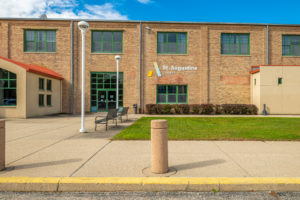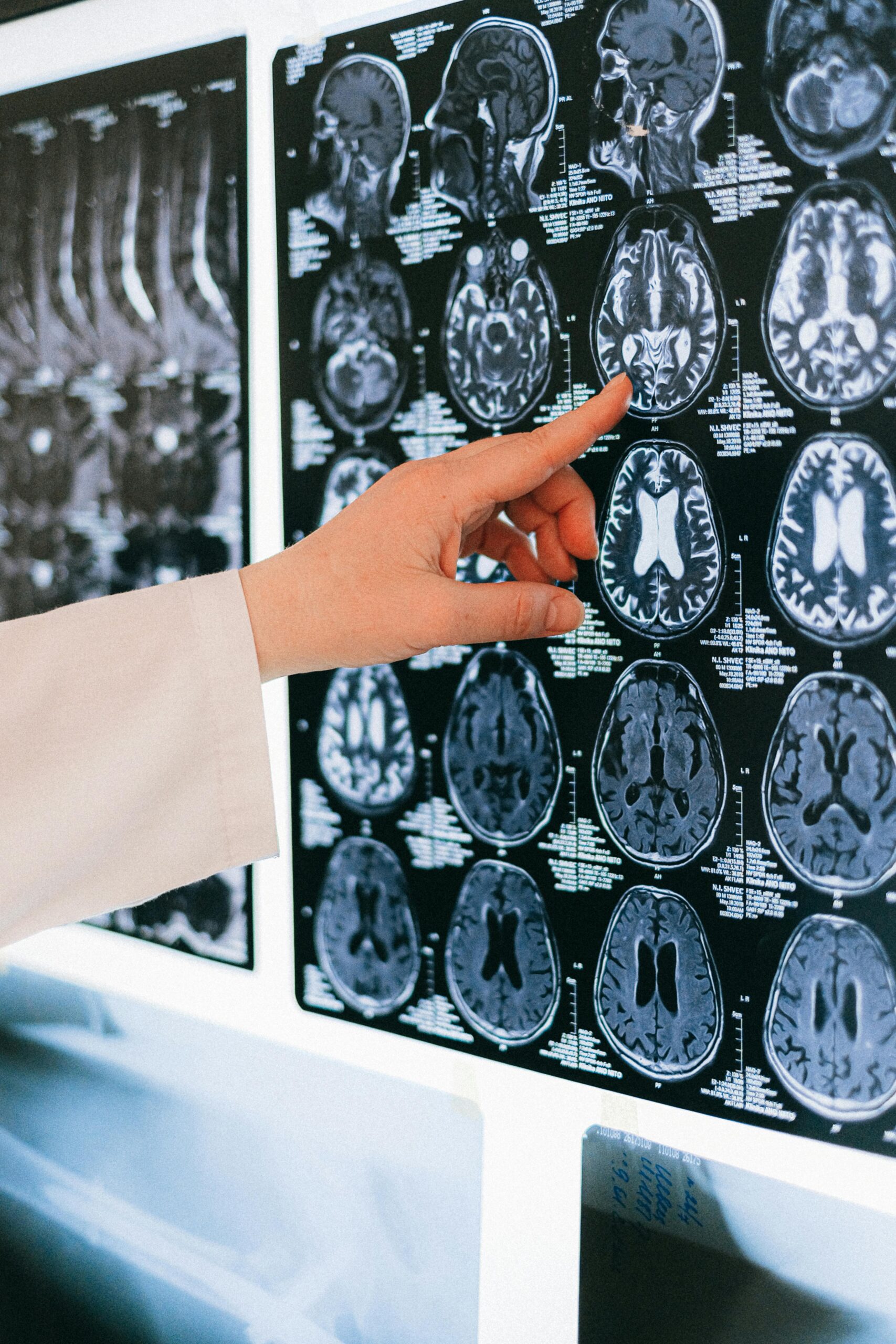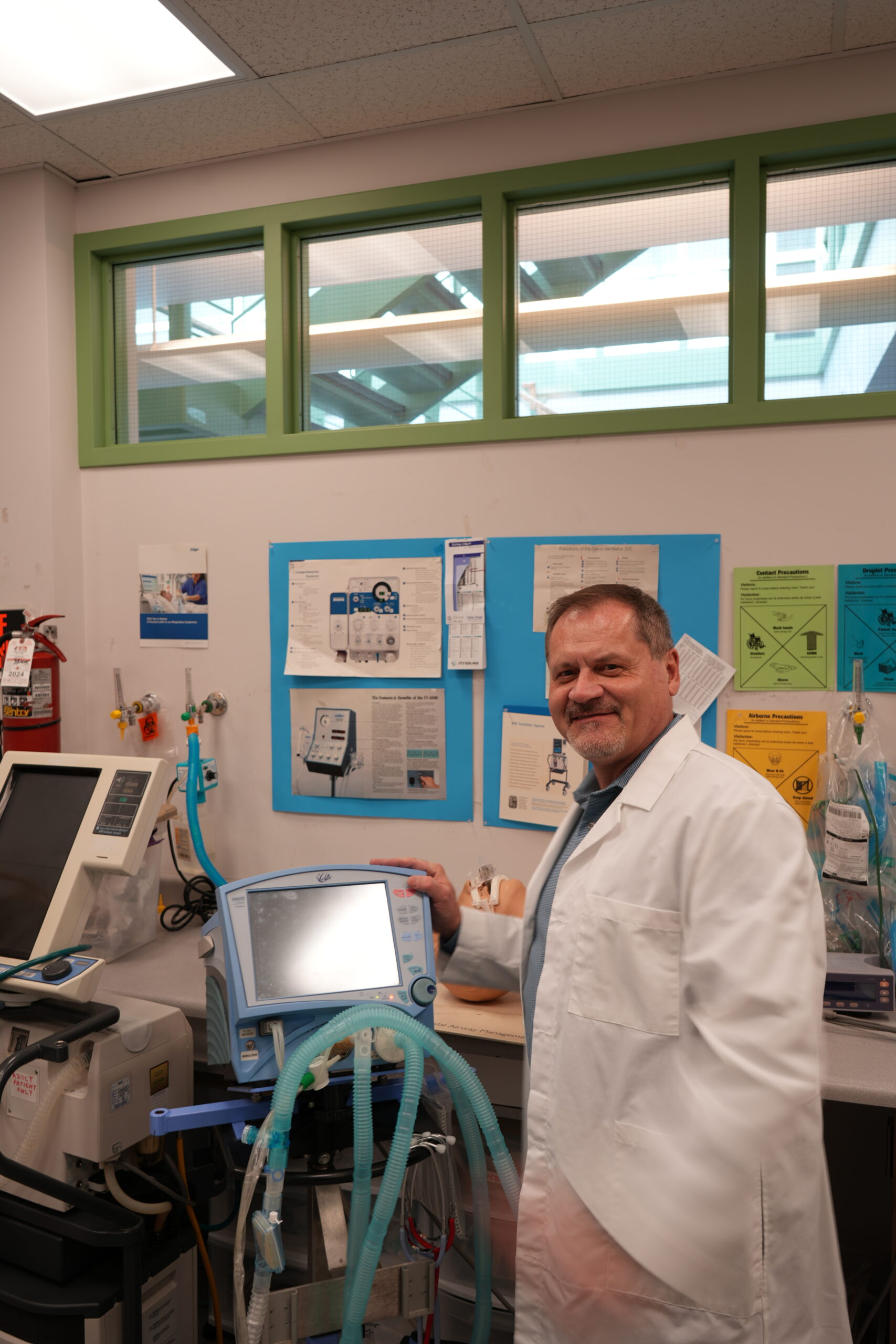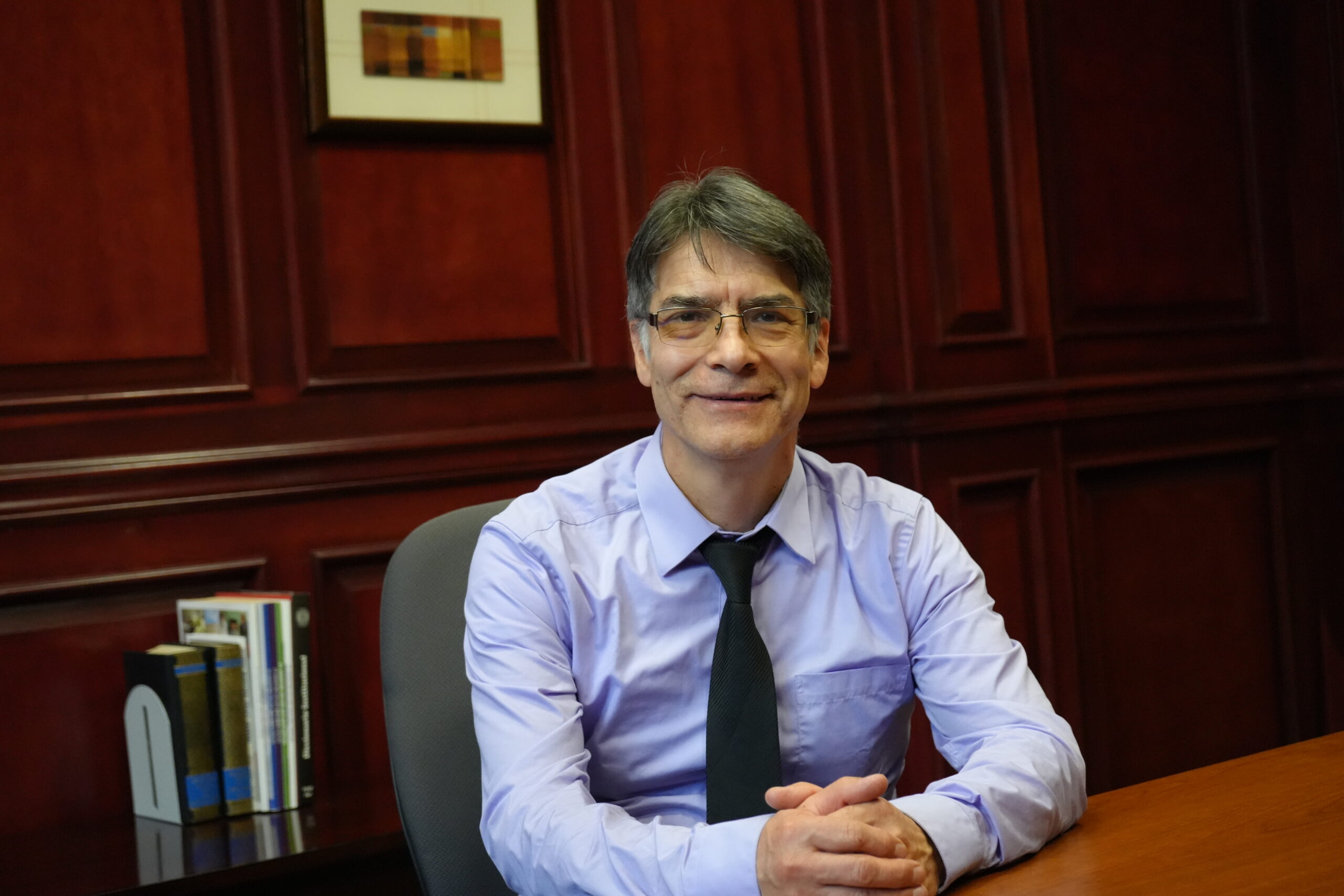
Respiratory Therapy
Program Length
6 semesters
80 credit hours
Degrees Offered
Associate of Applied Science
Learning Experiences
In Person
Associate of Applied Science Degree in Respiratory Therapy
Our Associate of Applied Sciences (AAS) degree in Respiratory Therapy is designed to train you in the growing field of respiratory care. As a student in this (80 credit hours) program, you will receive the training needed to work as a respiratory therapist in hospitals, home care, pulmonary clinics, and other healthcare environments. Our classes are designed for recent high school graduates and working students.
This is a unique therapy program, with a structure that somewhat differs from the rest of the curricula St. Augustine College offers; for example, the clinical segment of the program (4th semester and up) includes courses that meet only at specific times and whose duration is different from the standard 8-week terms. Always ask the Respiratory Therapy Learning Facilitator or other departmental staff for the most accurate, updated information.
*Please keep in mind that this program is 60-70% in-person.
Respiratory Therapy Program Details
Our Respiratory Therapy program will prepare you to provide specialized diagnostic and therapeutic procedures such as:
-
- Pulmonary function testing
- Arterial blood gas analysis
- Medical gas administration
- Humidity and aerosol therapy
- Airway management
- Cardiopulmonary resuscitation
- Ventilatory support of neonatal/pediatric and adult populations
- Hemodynamics and cardiac monitoring
In addition to learning these diagnostic and therapeutic skills and procedures you will also receive hands-on training in a variety of patient care-focused Chicagoland leading medical facilities and Long-Term Care Centers.
St. Augustine’s at Lewis University Respiratory Therapy Program prioritizes our students’ long-term success, making sure that you not only graduate with a diploma in Associate Applied Science Degree but also receive the skills needed for an in-demand career in Respiratory Therapy. The program comprises of six (6) semesters of coursework. Graduates are eligible to take the National Board for Respiratory Care (www.nbrc.org) Therapist Multiple Choice Exam. Candidates with a minimum score of 86 will receive a Certified Respiratory Therapist (CRT)credential and candidates who score 92 or higher are eligible to sit for the NBRC Clinical Simulation Examination, and upon successful passing receive a Registered Respiratory Therapist credential.
For more information related to the profession please visit American Association for Respiratory Care web page at www.aarc.org.
Accreditation
The Entry into Respiratory Care Professional Practice Program, CoARC number 200587, AAS Degree, St. Augustine College in Chicago Illinois is accredited by the Commission on Accreditation for Respiratory Care (www.coarc.com)
Program ID# 200587(www.coarc.com)
CoARC accredits respiratory therapy education programs across the United States through an outcomes-based process. This approach evaluates program effectiveness using performance indicators that measure the achievement of educational goals.
Program Outcomes Data: https://coarc.com/students/programmatic-outcomes-data/
Graduates of the program are eligible to take the NBRC examinations to become a Certified Respiratory Therapist (CRT). They may also sit for the Clinical Simulation Exam, and upon passing, earn the title of Registered Respiratory Therapist (RRT).
Additional Admission Requirements
In addition to the General Admission Requirements, applicants interested in this major must meet the following criteria:
Cumulative Grade Point Average (GPA): A (GPA) of 2.50 in the following prerequisite courses: BIO 108 Anatomy and Physiology, AHP 110 Applied Physics in Respiratory Care, AHP 113 Respiratory Care Pharmacology, BIO 208 Cardio-Pulmonary Anatomy and Physiology. These courses can be taken at St. Augustine at Lewis University
Mandatory Criminal Background Check: Students who may have concerns regarding the required background check are encouraged to speak with program faculty in the Respiratory Therapy Department before applying for admission. In compliance with standards set forth by the Joint Commission on the Accreditation of Health Care Organizations (JCAHCO), and the Health Care Worker Background Check Act, an Illinois state law, individuals providing health care at hospital/clinical settings must submit a certified fingerprint background check. This policy applies also to respiratory therapy students receiving clinical training in affiliated clinical facilities; therefore, prospective respiratory therapy students must be aware of this requirement before registering for either pre-respiratory courses or Respiratory courses. A prospective respiratory therapy student must be aware that any prior felony or misdemeanor conviction may impact the student’s ability to participate in clinical courses. College is required to submit the students’ background check results prior to admission to any clinical course rotation.
A Different Approach
Upon graduation from AAS degree in our Respiratory Therapy Program, students may pursue a bachelor’s degree.
Our approach to collegiate education is to work with students. A flexible schedule, small class sizes, and accommodating faculty bringing their clinical experience into the classroom give our students the tools needed to succeed in this program and future education.
Why Choose Respiratory Therapy?
Is respiratory therapy a good career? What does a respiratory therapist do? If you still have questions about just what a respiratory therapist does on a day-to-day basis, and you’re still curious about what a promising career our associate of applied science degree can do for you and your future read here.
Respiratory Therapy Career Outlook
In the wake of the COVID-19 pandemic, respiratory therapists are needed now more than ever, and you too could be on the first lines of saving lives.
The BLS projects that between 2021 and 2031 the number of respiratory therapist jobs will increase by 14% nationwide, indicating a high need for this profession.
Respiratory therapy can be both a prosperous and fulfilling career. The median national salary of a respiratory therapist in 2022 was around $70,540. On average, new graduates hourly rates are between $35.00 to $40.00 per hour. These rates may vary from hospital to hospital and also depend on which state you will be working. The average annual respiratory therapist salary in Illinois is around $78,000.00. Traveling Respiratory Therapists will earn on average around $90,000 a year according to ZipRecruiter. Respiratory Therapists working abroad will earn even higher salaries. Those who received a respiratory therapist associate degree from St. Augustine have made successful careers in the field of Respiratory Therapy, with 100% of all graduates finding jobs with an average starting salary of $70,000 – $80,000.
The American Association for Respiratory Care’s (AARC) Career Center has recently listed the following job openings:
- Respiratory Educator
- Respiratory Care Practitioner
- Registered Respiratory Therapist
- Respiratory Therapy Program Instructor
- Respiratory Therapist
And more. With a degree in Respiratory Therapy from St. Augustine College at Lewis University, you’ll be well-prepared to join a dedicated workforce of healthcare professionals.












